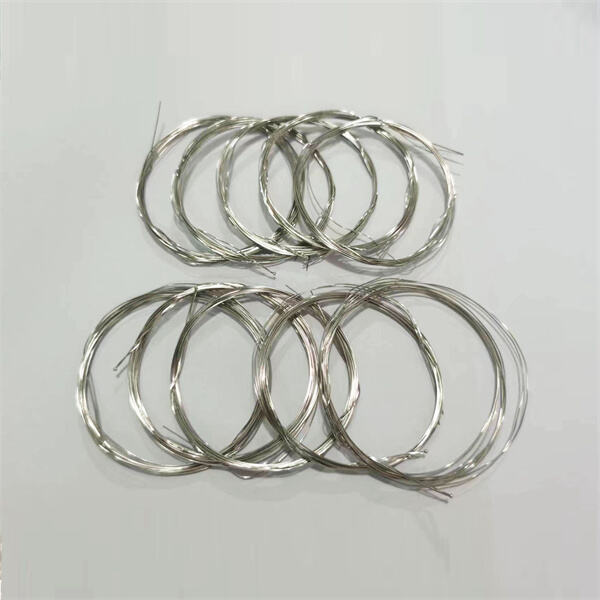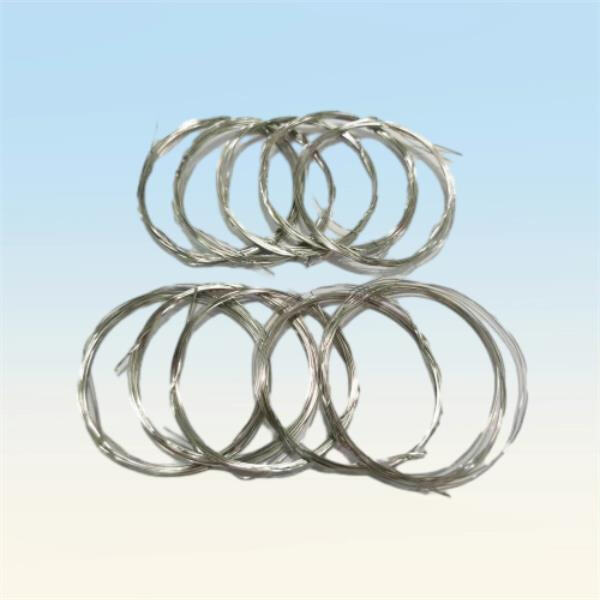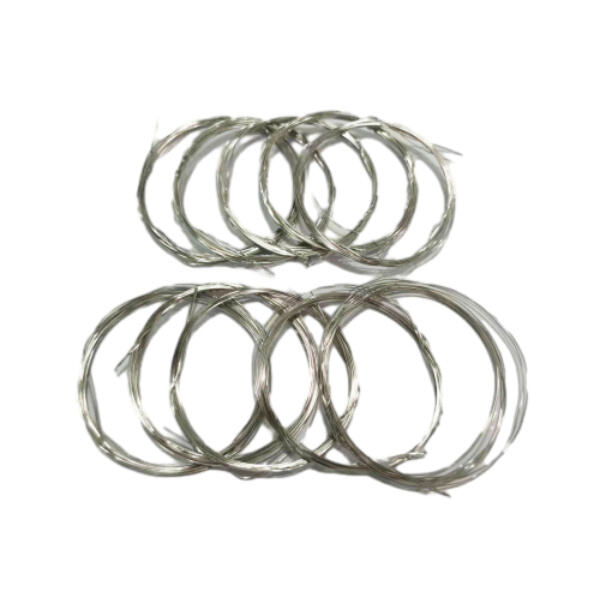Thermocouples are specialized devices used to measure temperature in applications such as that in machines or even in homes. They function by fusing two distinct varieties of metals. Different metals are utilized within the thermocouple materials and this is another critical part as it determines the efficiency or capability of the thermocouple to measure temperature correctly. We will discuss the various thermocouple materials used, the importance of selecting the appropriate materials, and the differences between the materials. We will also explore how the combination of metals impacts how well thermocouples work as well as innovative materials being used to manufacture thermocouples.
Thermocouples can be made from different metals or mixtures of metals, called alloys. Nickel, chromium, iron, and copper are among the most popular metals used to manufacture thermocouples. These materials are ideal for this purpose since they are excellent conductors of electricity, which is critical in determining temperature. They are also very stable at high temperatures. Kuaike Precision Alloy If the thermocouple has a good performance, we need to use high-quality metal materials, so that the thermocouple measurement in many different occasions, both industrial machinery or scientific experiments.
Thermocouple are built using different kinds of metals that affects the accuracy and the lifetime of the thermocouple sheath as well. The selection of metals used is critical to obtaining accurate temperature readings. The result is that if materials are used incorrectly, the thermocouple may not function properly and that can give you incorrect temperature readings. Kuaike Precision Alloy has high requirements in terms of metal selection, conductivity, heat resistance, rust and corrosion resistance. This means that we can make sure that thermocouples will be up to the task, even in more difficult situations, such as extreme heat or wet assemblies.

The various types of metals used in copper constantan thermocouples each have their distinct features that impact thermocouple performance. In addition, nickel-based alloys boast of great resistance to elevated temperatures, making them suitable for really hot services. Copper-based alloys, on the other hand, are well known for their good electrical conductivity, that is, they conduct well electrical signals. Kuaike Precision Alloy provides various types of thermocouples, which are components made of different classes of metals, giving consumers a suitable selection according to these requirements. By comparing the characteristics of all three common thermocouple materials, users can find out which type of thermocouple will work best for that application.

The metal combination, or alloy structure, utilized in iron constantan thermocouple is essential for their functionality. Various metal alloy mixtures have their own specific properties, affecting critical factors like accuracy, stability, and response time of the thermocouple sensitivities. Since each application comes with its own unique needs, it develops highly customized metal mixtures specifically for thermocouples. This allows customers to tune their thermocouples based on the performance of different metal mixtures. This allows them to receive more accurate readings, something which is crucial in all sorts of areas like science and engineering.

The future of thermocouples depends on the advancements made in material technology. This opens up for scientists and engineers to search for new materials with superior properties to enhance the accuracy, sensitivity, and reliability of temperature measurements. It devotes resources to research and development to remain ahead of the game in these formidable thermocouple manufacturing materials. With the latest materials and technologies, the thin film thermocouple report exceptional performance whilst meeting the ever-changing and expanding needs of their clients. This focus on innovation has developed thermocouples capable of operating in a diverse array of environments.
The precision alloy products provided by Kuaike can maintain stable performance under various conditions, and its excellent quality can reduce the cost of frequent replacement by users. Our precision alloy products have special magnetic properties, electrical properties or thermal expansion coefficients, which are suitable for high-precision and high-sensitivity applications, and can also be optimized by precisely controlling the preparation process to meet specific application requirements.
Kuaike's precision alloy products have been sold all over the world and have important applications in electronics, automobiles, medical care, energy and other fields. The production and sales center of Kuaike covers an area of 5,000 square meters and has more than 30 types of precision alloys that meet customer needs. In terms of industrial chain integration, the company maintains close cooperation with downstream end users to optimize the cost structure and enhance overall competitiveness.
Kuaike ensures that all kinds of user needs are guaranteed while improving efficiency and quality. We will also visit users regularly to understand their satisfaction and changes in needs, optimize service processes through data analysis, and reduce users' maintenance and time costs to improve cost performance. Transparent service process allows users to understand the service progress in real time through the online platform, improving user experience.
Provide a professional technical support team to help users solve technical problems, conduct innovative designs, and produce diversified and personalized products to ensure that user needs are met. We plan to combine precision alloys with other materials to improve the comprehensive performance of materials, and reduce energy consumption and pollution in the production process by optimizing alloy composition and preparation process.

Copyright © Kuaike Precision Alloy (Shanghai) Co., Ltd. All Rights Reserved